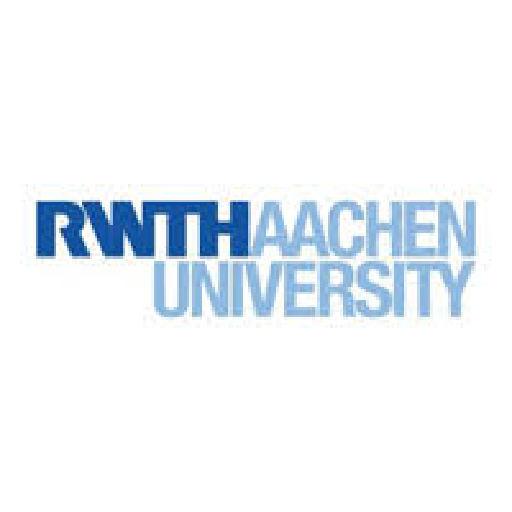STUDY IN GERMANY
ABOUT GERMANY

Germany is a country located in central Europe with a rich history and culture that has influenced the entire European continent. German culture is a blend of predominantly Christian values with literature, art, philosophy, logic, reason, and a love of beer and sausages. The country is known for its architecture, music, and food, which varies considerably from region to region. German cuisine makes generous use of meat, especially pork, and Germans are famous for their love of beer. The German language, traditions, and customs are what make the German culture unique. Germany is also known for its long and rich history, which has put it at the forefront of European thought, politics, and art for over 1,000 years. The country has played an important role in Western culture, and the arts have been central to Germany’s idea of itself. Germany has a progressive and welcoming immigration policy, and roughly a quarter of the population is made up of immigrants. The intrinsic values in German culture play an important role in daily life for many German people, including order, organization, and punctuality.
WHY STUDY IN GERMANY?
1. Excellent Universities and Courses: Germany is home to outstanding universities that offer a wide range of courses, many of which are taught in English. The qualifications gained in Germany are highly regarded globally, providing a strong foundation for a successful career
2. Low or No Tuition Fees: Most public universities in Germany offer education with little to no tuition fees, making it an affordable option for students. International students only need to pay a small administrative fee, making education accessible
3. Support for International Students: Germany provides a lot of support for international students, creating a welcoming environment for those pursuing
their studies in the country. This support includes various programs tailored to international university applicants and intercultural projects and workshops
4. Safe and Diverse Environment: Germany is known for being a safe and stable country with a diverse and open society. It offers a vibrant and cosmopolitan environment, making it an attractive place for students from around the world
5. Opportunities for Travel and Exploration: Studying in Germany also provides the opportunity to travel within Europe, as a student visa for Germany allows travel anywhere within the EU. This allows students to explore the rich history and cultural heritage of Europe
POPULAR CITIES IN GERMANY

TOP UNIVERSITIES IN GERMANY

Technical University of Munich

Ludwig-Maximilians-Universität München

Ruprecht-Karls-Universität Heidelberg

Freie Universitaet Berlin

Humboldt-Universität zu Berlin

KIT, Karlsruhe Institute of Technology

RWTH Aachen University

Technische Universität Berlin (TU Berlin)

Eberhard Karls Universität Tübingen

Albert-Ludwigs-Universitaet Freiburg Freiburg im
Albert-Ludwigs-Universitaet Freiburg Freiburg im
189 QS World Ranking
Breisgau, Germany

Technische Universität Dresden

Rheinische Friedrich-Wilhelms-Universität Bonn
REQUIRED DOCUMENTS FOR STUDY IN GERMANY
UNDERGRADUATE/ POST GRADUATE APPLICATIONS
Certified Academic Transcripts
1. School Mark Sheets / Diploma (Grade 9th, 10th, 11tn,12th / IGCSE, AS level)
2. Predicted Grades for final year (Grade 12/ A level/ IBDP)
3. High School Certificate
4. Undergraduate / Post graduate Mark Sheet
5. Undergraduate / Postgraduate Degree Certificate
6. Passport Copy (Valid for more than 6 months)
7. Resume – Detailed CV listing your experience and internships with dates and job responsibilities
8. Evidence of Work Experience- On Official letter-head of university/company, signed & stamped
9. National ID
10. Reference Letter ( 2 or 3 On Official letter-head of school or company, signed & stamped
11. Statement of Purpose- An essay of around 500-1500 words explaining your reasons to pursue the course and future goals/ career options including extra-curricular activities.
Proof of English Proficiency
12. IELTS (Academic)
13. Any other acceptable English Proficiency test (PTE / TOEFL)
14. German language test
ADMISSION PROCESS IN GERMANY
The admission process for studying in GERMANY involves several steps, which can be summarized as follows:
1. Choose a University: Research and select the university and the specific program you wish to apply for.
2. Check Admission Requirements: Ensure that you meet the admission requirements for the chosen program. This may include having a recognized higher education entrance qualification (HZB) and meeting any specific academic or language proficiency requirements.
3. Prepare Required Documents: Gather the necessary documents, which may include an officially certified copy of your higher education entrance qualification, transcripts, and language certificates where applicable.
4. Submit Application: Complete the application form and submit it along with
the required documents directly to the university.
5. Application Deadlines: Be mindful of the application deadlines, which vary between institutions. As a general rule, applications for courses starting in the summer should be submitted by a certain date, and for courses starting in the winter, the deadline is typically around mid-July.
6. Language Requirements: For programs taught in English, you may need to provide proof of language proficiency. Many German universities offer English-taught programs, and language certificates may be required.
7. Interview or Testing: If successful, you may be invited to attend an interview or complete skills testing as part of the admission process.
VISA PROCESS FOR GERMANY
To apply for a study permit in GERMANY, follow these steps:
1. Visa Types:
a. German Student Visa: This visa is for individuals who have been accepted to a higher education institution in Germany and allows for full-time study at a university.
b. German Student Applicant Visa: For those who are still in the process of applying to a university in Germany or are planning to attend a preparatory language course.
2. Application Process:
a. The application for a German student visa should be submitted to the German Embassy or Consulate in the applicant’s home country.
a. It is recommended to apply for the visa well in advance, typically around 3 months before the planned travel to Germany.
3. Visa Requirements:
a. The specific requirements for a German student visa may include a duly filled out and signed national visa application form, a valid national passport, passport copies, birth certificate, and other relevant documentation depending on the type of visa being applied for.
4. Residence Permit:
a. After arriving in Germany, students are typically required to apply for a residence permit at the local immigration office, especially if their stay in Germany is for more than 90 days or 3 months.
5. Visa Extension:
a. The German student visa can be extended for the complete duration of study at a university, and the residence permit can also be extended based on the length of the studies.
